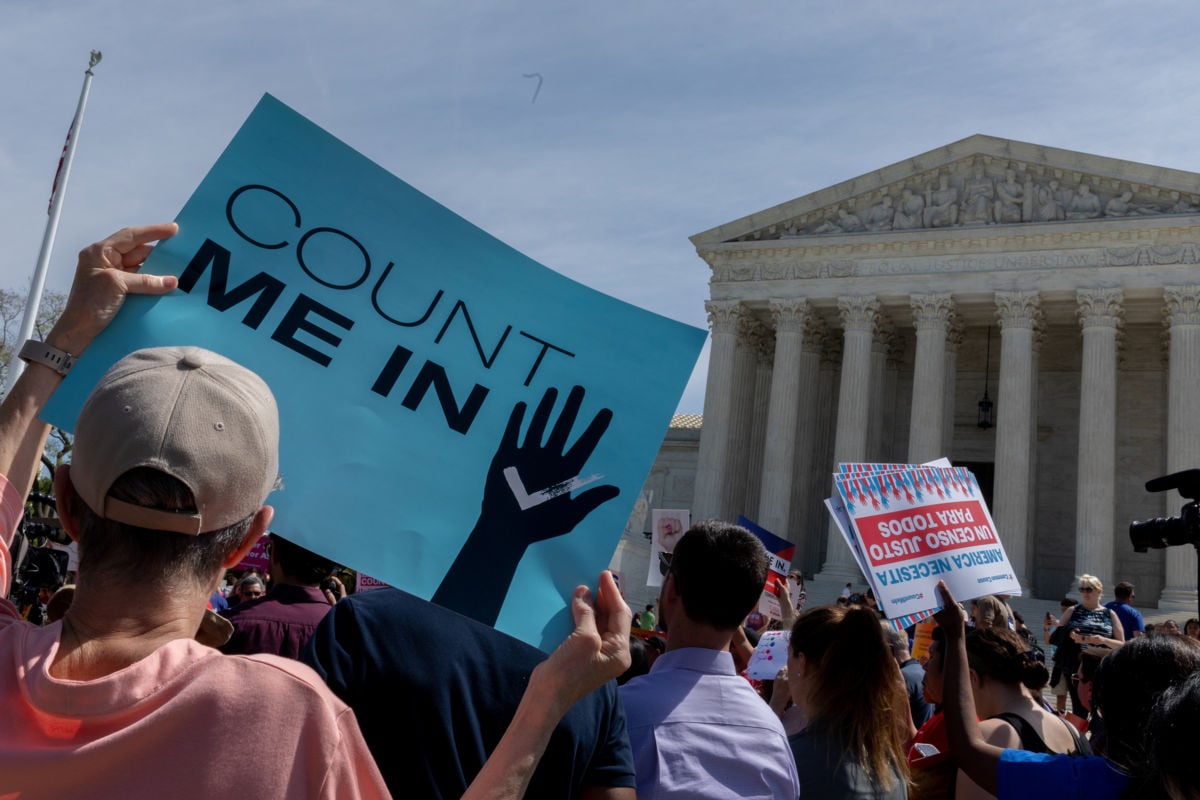Support justice-driven, accurate and transparent news — make a quick donation to Truthout today!
A divided Supreme Court ruled last week that the Commerce Department’s decision to add a citizenship question to the 2020 census violated federal law. The opinion delivered a setback to the Trump administration’s last-minute attempt to add an untested citizenship question to the census. Here’s what the court said and what it means for the upcoming census.
1. The citizenship question is currently blocked from appearing on the 2020 census.
The Supreme Court upheld in part the ruling of a lower federal court barring the question. In the majority opinion, Chief Justice John Roberts declared that the Commerce Department provided a pretextual reason for wanting the citizenship question that was merely “a distraction,” in violation of the legal requirement that agencies disclose the true reasons behind their decisions. The case has been sent back to the district court for further proceedings.
2. Blocking the citizenship question is the right outcome.
Blocking the citizenship question is the right outcome given the egregious facts of this case. But the justices also unfortunately made many holdings that misconstrue the law. They overturned much of the lower court’s holding that the Commerce Department committed a “a veritable smorgasbord” of violations under the Administrative Procedure Act, the law that governs how federal agencies are allowed to make decisions. The lower court found those violations to include, among others, the Commerce Department’s violating provisions of the Census Act, ignoring uncontested evidence that the citizenship question will lead to an undercount, and lying about the administration’s true reason for wanting to ask about citizenship on the census. The Supreme Court agreed that the administration provided a false reason for adding the question and blocked the question on that basis alone, but its opinion disappointingly sanctioned the other flagrant abuses of power that the Commerce Department undertook in this case.
3. Even without the citizenship question, the federal government must make serious efforts to regain public trust in filling out the 2020 census.
Fear and mistrust of the federal government remain at an all-time high. Discussion of the citizenship question has exacerbated fears of filling out the census, particularly among immigrants and people of color. Experts predicted that the question would have caused almost 9 million people not to complete their census forms.
While the citizenship question cannot now appear on the 2020 census, the threat of the question amplified long-running fears of interacting with the federal government. A recent Census Bureau study revealed that nearly half of the study’s participants expressed some level of concern about the confidentiality of their census responses. What’s more, almost one quarter of participants were “extremely concerned” or “very concerned” that their responses would be used against them.
Given these concerns, the federal government must now do everything it can to reduce fears about responding to the census. For instance, it must double down on its commitment to following the laws that protect the confidentiality of census responses. Those laws are ironclad: census responses must remain confidential and cannot be used against you in any way. The administration should broadcast its commitment to following them across the country.
4. Other challenges to the 2020 census still loom.
The citizenship question was not the only threat to the 2020 census. Although this week’s decision removed one of the greatest dangers, the census is still considered a “high risk program” according to the most recent report by the Government Accountability Office.
The 2020 census is the first that will be conducted primarily online. Concerns about cybersecurity persist, as do concerns over the digital divide — the gap between those with reliable access to the internet, and those with little-to-no access. Outreach to communities that lack internet access will be of paramount importance if the 2020 census is to proceed smoothly. Moreover, the confidentiality concerns discussed above persist. And the Census Bureau is not on course to hire the number of temporary workers it will need to go door-to-door in order to count the people living in households that do not respond to the census after receiving their census forms in the mail.
Advocates need to continue pressuring the administration to get the census back on track. Congress will need to engage in heavy oversight of the Census Bureau. And states and local governments can step up efforts to ensure their residents get counted. In short, the bureau may still have a lot of work to do to ensure a fair and accurate 2020 census, but everyone must do their part to mobilize the count.
Media that fights fascism
Truthout is funded almost entirely by readers — that’s why we can speak truth to power and cut against the mainstream narrative. But independent journalists at Truthout face mounting political repression under Trump.
We rely on your support to survive McCarthyist censorship. Please make a tax-deductible one-time or monthly donation.
